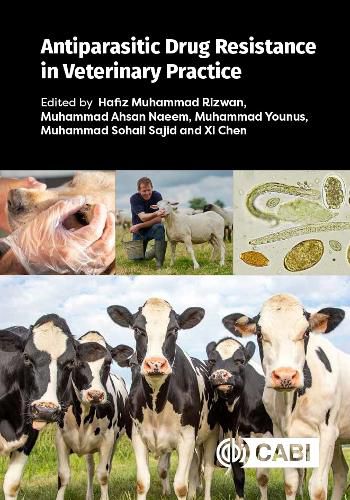Readings Newsletter
Become a Readings Member to make your shopping experience even easier.
Sign in or sign up for free!
You’re not far away from qualifying for FREE standard shipping within Australia
You’ve qualified for FREE standard shipping within Australia
The cart is loading…






Lack of clean water, inadequate sanitation, and insufficient infection prevention and control promote the spread of parasites. The discovery of antiparasitic drugs was considered a milestone in the veterinary and medical sciences, but their use has subsequently become limited due to the emergence of resistance. While plenty of attention has been given in human and animal health communities to the global threat of antimicrobial drug resistance, specific antiparasitic advice is less available. This book provides an in-depth view of the issue for parasitologists, pharmacologists and veterinary scientists. Specifically discussing antiparasitic drug resistance mechanisms and factors responsible for the problem, it covers: The physiological basis of parasitism; Resistance across protozoa, helminths, insects, mites and ticks; Molecular and phenotypic diagnostic methods; Practical strategies for mitigating resistance development. While it is clear that the veterinary field urgently requires the development of new antiparasitic drugs, of equal or even increased importance is the evaluation of alternative therapies and formulation of stringent policies to ensure appropriate drug use in veterinary practice. Highlighting the importance and development of resistance across different parasite groups, this book covers factors responsible for resistance development and advises strategies for effective stewardship and resistance mitigation.
$9.00 standard shipping within Australia
FREE standard shipping within Australia for orders over $100.00
Express & International shipping calculated at checkout
Lack of clean water, inadequate sanitation, and insufficient infection prevention and control promote the spread of parasites. The discovery of antiparasitic drugs was considered a milestone in the veterinary and medical sciences, but their use has subsequently become limited due to the emergence of resistance. While plenty of attention has been given in human and animal health communities to the global threat of antimicrobial drug resistance, specific antiparasitic advice is less available. This book provides an in-depth view of the issue for parasitologists, pharmacologists and veterinary scientists. Specifically discussing antiparasitic drug resistance mechanisms and factors responsible for the problem, it covers: The physiological basis of parasitism; Resistance across protozoa, helminths, insects, mites and ticks; Molecular and phenotypic diagnostic methods; Practical strategies for mitigating resistance development. While it is clear that the veterinary field urgently requires the development of new antiparasitic drugs, of equal or even increased importance is the evaluation of alternative therapies and formulation of stringent policies to ensure appropriate drug use in veterinary practice. Highlighting the importance and development of resistance across different parasite groups, this book covers factors responsible for resistance development and advises strategies for effective stewardship and resistance mitigation.